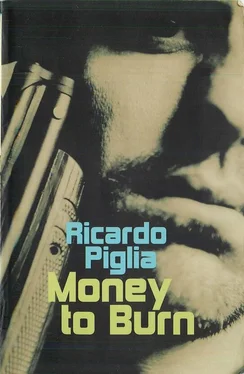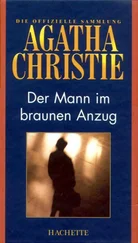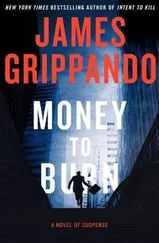'Just think: to earn a bill this size, a security guard, for example' — security guards are always contracted in, and they know it, they always catch up with the crooks once they've got into the place through the skylight, that's when the fellow appears, an inane grin on his face — 'would have to work for a fortnight… and a bank-clerk, depending on his seniority, would have to work at least a month to get a bill of this size, as he whiles away his life counting other people's money.'
In contrast, they had wads and wads of notes, all of their own. The pills were now dissolved, crushed and disappearing in a glass of Calcigenol, looking like a glass of milk, but tasting very different. The loot was in the bathroom, ready to burn in the basin. The Kid is laughing aloud. Dorda also laughs, if a little fearfully, at what he's cooking up.
It was then, at some point or other, at some given moment, it became known that the criminals were setting fire to the five million pesos remaining to them from the raid on the San Fernando Town Hall from which, as is well known, they seized seven million.
They began tossing burning 1,000-peso bills out of the window. From the kitchen skylight they succeeded in floating the burning money down towards the corner. The bills looked like butterflies of light, flaming notes.
A buzz of indignation rippled through the crowd.
They're burning it.'
They're burning the money.'
If the money were the sole justification for the murders they committed, and if what they did, they did for the money they were now burning, that had to mean they had no morals nor motives, that they acted and killed gratuitously, out of a taste for evil, out of pure evil, that they were born assassins, insensate criminals, degenerates. Filled with indignation, the citizens gathered to observe the scene, offering shouts of horror and loathing, looking like something from a witches' sabbath straight out of the Middle Ages (according to the papers), they couldn't bear the prospect of 500,000 dollars being burned before their very eyes, in a move that left the city and the country horror-struck, and which lasted precisely fifteen interminable minutes, which is exactly how long it takes to burn such an astronomical quantity of money, those notes that, for reasons beyond the authorities' control, were destroyed on a metal sheet called, in Uruguay, a 'hub' and which is used as the brazier for the grill in barbecueing the Sunday roast. It was in just such a 'hub' that the money went up in smoke, and the police stood by in stupefaction, for what could they do with criminals capable of such outrageous behaviour? Scandalized, people's minds indignantly and immediately turned to the poor, those lacking in basic necessities, the rural population of Uruguay living on the margins, and to the little orphans whose futures could have been secured by that very amount.
'If they had only saved the life of a single one of the orphaned children, they would have given some sort of point to their existence, the cretins…' announced a lady, 'but they are evil to the core, bad from the innards out, mere animals,' the journalists were told by the eye-witnesses, and the television cameras rolled, then transmitted all-day-round repeats of the rite which the TV presenter Jorge Foister labelled an act of cannibalism.
'Burning innocent money is an act of cannibalism.'
If they had given away the money, if they had thrown it out of the window at the people gathered on the street, if they agreed with the police to hand it over to a charitable foundation, everything would have gone differently for them.
'For example, had they donated those hundreds of thousands to improving prison conditions where they themselves are going to be held…'
As it was, everyone understood perfectly well that this was a declaration of all-out war, a direct attack, a textbook case, waged on society as a whole.
'They should be hanged.'
'They should be left to die slowly, burnt to a crisp.'
The idea got out that money is innocent, even when acquired as a consequence of death and crime. It couldn't be considered culpable, but rather it should be viewed as neutral, as a symbol that comes in useful depending on how one wants to use it.
The notion also began to circulate that the burnt money served as an example of murderous madness. Only crazed killers and immoral beasts could be sufficiently cynical to burn 500,000 dollars. Such an act (the dailies said) was worse than all the crimes that they had committed, because it was an act of nihilism and an example of pure terrorism.
In statements made to the magazine Marcha , the Uruguayan philosopher Washington Andrada signalled that however terrible one might consider it, such an action, a kind of innocent potlatch let loose on a society with no memory of such a ritual, an act absolute and free in itself, a gesture of sheer waste and sheer outpouring, would in other societies have been taken as a sacrifice made to the gods because only the most valiant is worthy of sacrifice and there is nothing more valiant between ourselves than money, so said Professor Andrada, and he was at once summoned by the magistrate.
The manner in which they burnt the money is proof absolute of their evil genius, because they burnt the money by rendering clearly visible the bills of 1,000 pesos which gradually took light, one after the next, the 1,000-peso bills burned like butterflies whose wings are touched by the flames of a candle and beat for another second as they flare, flying on through the air though consumed by fire for an interminable instant before burning out and turning to ash.
And after all these interminable minutes in which they say the notes burnt like flaming birds before transforming into a heap of charcoal, a funeral pyre to our social values (as declared an eye-witness on television), a wonderfully beautiful column of azure ash raining from the window in a shower resembling the calcified remains of the dead that get scattered across the ocean, or over the mountains and woods, only not over the filthy city streets, for ash must never drift on to the stone floor of our concrete jungles.
In the wake of this act which hypnotized then paralysed everyone, the police came round first, reacting by launching a brutal offensive as if the time in which the Nihilists (as the newspapers now called them) completed their blind ritual had dazzled and delayed them, yet also left them prepared and further inclined to achieve the final hecatomb.
Weary with issuing useless orders, Commissioner Silva had stayed quiet for a while. He was at the control post, dressed in his white mackintosh, leaning on one elbow, alone and smoking a cigarette. He observed the darkened windows of the flat and saw the hesitant silhouettes of the malefactors, up there, still holding out. It was essential to kill them and prevent them from talking. About what? Had there been negotiations? 'Is it true, Police Commissioner,' the reporter on El Mundo noted down the questions in his exercise book, 'that some policemen, as has been said, arranged the malefactors' flight out of San Fernando in return for a cut of the booty?'
Silva was the man responsible for having let the Argentines escape, and now every Uruguayan police officer who fell would be counted against him. The lad who wrote the police reports for El Mundo observed him from the middle of the street. That face, with its scar, its disdain, loneliness and wickedness, all lodged in the dead glint of his eyes. He caught a fleeting expression of anxiety in Silva, a look he swiftly wiped from his face. The commissioner hadn't allowed himself more than a moment to cover his eyes with the tips of his fingers before shooting another sideways glance at the front of the house illuminated by the beam of the spotlights. A cold glance of a hard guy, a look too fleeting to be faked (according to Renzi) and yet too deliberate to be entirely natural. How many years and how many inner struggles had it taken to perfect that kind of gesture of feigned unease?
Читать дальше












